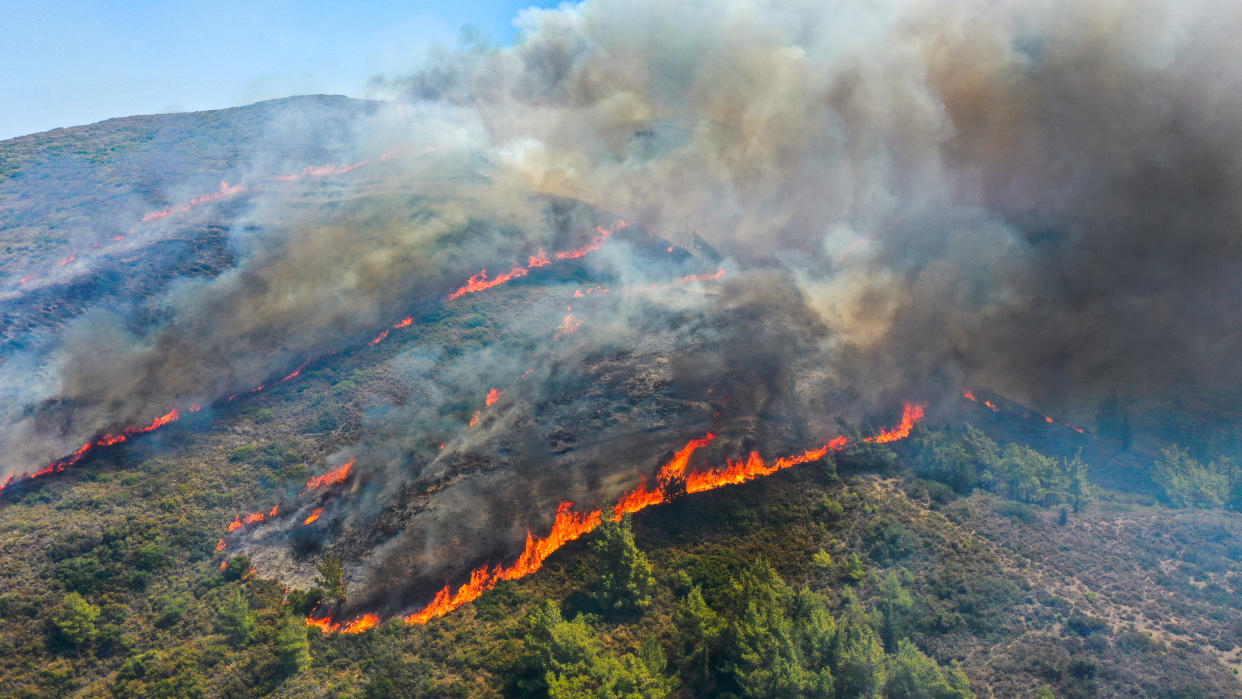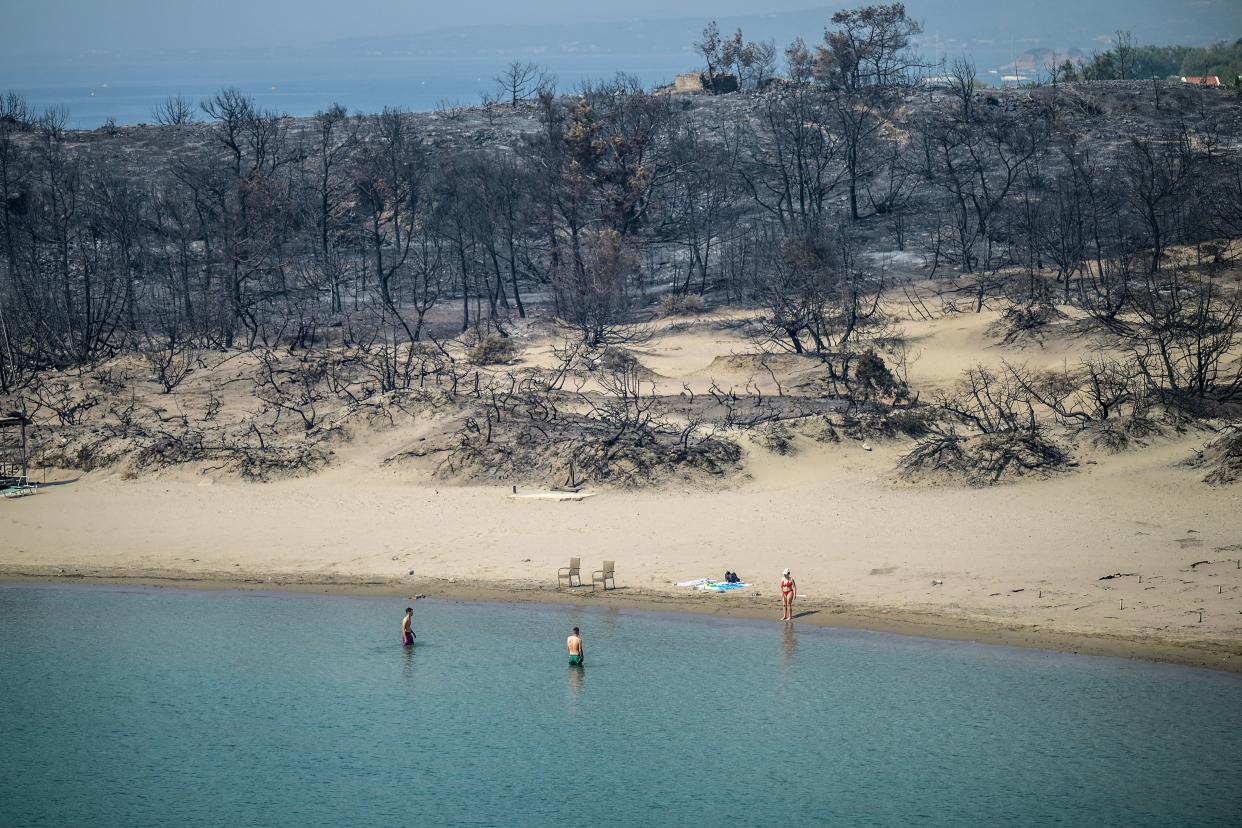Heatwaves: How to cope with climate anxiety

Wildfires in Greece. An unprecedented European heatwave. Record sea temperatures in the US. It’s no wonder why so many of us are feeling climate anxiety.
A 2022 survey from YouGov found that 67% of people have become increasingly worried about climate change and its effects following the 2022 heatwaves in the UK. Women are markedly more worried about the climate crisis than men (75% compared to 58%).
The worry is also split by political preferences, with 83% of Labour voters anxious about the environment, compared to 56% of Conservatives.
A separate survey of 3,000 British children from 2023 found that 70% of kids aged between 12 and 18 are worried about the world they will inherit. A further 60% believe that the climate crisis is affecting their generation’s mental health, while 75% want the government to take stronger action on climate change.
Read more on climate change
Greece fires – Live: 61 wildfires erupt in 24 hours as flames reach outskirts of Athens - Yahoo News UK, 1-min read
Toxic Heat: 13m Brits say climate change a serious global threat ‘out of control’ - Evening Standard, 4-min read
July is the hottest month on record - and likely in 120,000 years: ‘A foretaste of the future’ - The Independent, 6-min read

What is climate anxiety?
"Climate anxiety can be perceived as a psychological and emotional response to the existential threat posed by climate change," psychologist Barbara Santini explains. "It isn't merely 'worry' but a deeper, more profound sense of dread and unease stemming from the realisation of the ecological crises we're facing."
Climate anxiety can manifest itself in several different ways, from acute stress, to depression, feelings of grief and loss, and even post-traumatic stress disorder (PTSD).
"Moreover, this anxiety is often associated with a sense of guilt and responsibility for not doing enough or being part of the problem," Santini adds. "It’s a frustration towards the perceived lack of action from authorities or society at large."
A recent phenomenon
While anxiety caused by environmental threats and natural events is nothing new, actually living through what seems to be like increasingly extreme weather events is causing a new prolonged anxiety.
"Climate anxiety is a new manifestation of psychological distress," Santini explains. "It has emerged in response to our growing understanding of the science of climate change, the lived experiences of extreme weather events, and the ongoing discussions around the catastrophic implications of failing to address climate change."
Santini says, in recent years, she’s seen a ‘palpable increase’ in the number of people seeking help for feelings associated with climate anxiety.
"Many of my clients express feelings of powerlessness, fear, and despair, and these feelings have been particularly prominent among young people who are acutely aware that they will have to live with the consequences of current environmental decisions," she adds.

How to cope with climate anxiety
Dealing with climate anxiety can involve a range of coping strategies. Santini outlines her top tips:
Diversify your news sources: It’s easy to feel anxious about the environment if all you’re seeing is doom and gloom, so make sure you’re exposing yourself to positive stories about climate action and solutions.
Educate yourself: Understand what’s happening and the risks involved. Misinformation or lack of knowledge can lead to unnecessary distress.
Emotional regulation: Practice mindfulness, meditation, or other relaxation techniques. These can help manage the physiological symptoms of anxiety.
Active engagement: Engage in environmental advocacy. This can provide a sense of control and purpose.
Connect with a community: Connect with others who share your concerns. This can help validate your feelings and prevent the sense of isolation that can come from dealing with a global, complex issue.
Seek counselling: If feelings of anxiety become chronic or overwhelming, seek professional help.


